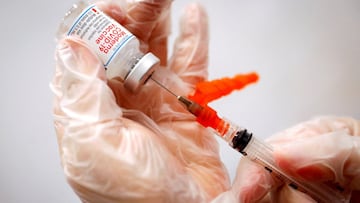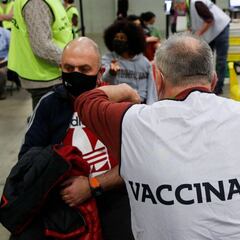For how long does the booster shot protect you from covid-19?
The third dose of the coronavirus vaccine has been available for months and a new study published by the CDC has outlined the limits of the booster shot's protection.


Booster vaccines have been an option for months now and are considered a vital step in ensuring that the population is adequately protected against more transmissible variant like Omicron. However a new report has highlighted how quickly the influence of the booster shot can begin to wear off.
A study published by the Centers for Disease Control and Prevention (CDC) found that booster shot immunity peaked during the first two months after getting the third dose. Those first two months saw booster recipients gain an immunity against hospitalisation of 91%.
However by the fourth month that figure had dropped to 78%. This is still a high level of protection but it does go to show that vaccine immunity does wane fairly quickly.
What if there was something that reduced Covid deaths by 96% and hospitalizations by 93%, consistently across all age groups 18+, during both the Delta and Omicron waves?
— Eric Topol (@EricTopol) February 18, 2022
There is. It's called a booster shot. pic.twitter.com/bjubeBJpT9
Will a fourth dose of covid-19 vaccines be required?
Our knowledge of Omicron’s contagiousness is still limited and the threat of other, even more transmissible variants remains. However a number of nations are already considering the introduction of a fourth round of covid-19 vaccinations to provide greater immunity for vulnerable groups.
Israel became the first country to administer fourth doses widely and Australia now recommends that immunocompromised individuals get a fourth dose. In Israel the fourth dose is reserved for healthcare workers, the immunocompromised, and those aged 60 or older.
However not everyone in the healthcare industry agrees that frequent booster shots are the way to go and many support a more seasonal approach.
Sweden’s public health agency recommended on Monday that people 80 and over receive a second booster dose of coronavirus vaccine, which would be a fourth overall shot. https://t.co/KpibZ6Qy5l
— The New York Times (@nytimes) February 15, 2022
Immunologist Deepta Bhattacharya from the University of Arizona said: “I don't think it's a sustainable strategy to ask people to get boosters of the same vaccine every two months or three months. People just aren't going to do it.”
Related stories
"Could we get to the point where public health officials recommend a shot once a year," he continued. "I think that's fairly likely. Now, whether everyone will absolutely need that shot to prevent severe disease each year, that's a different question, and we'll have to wait for the data. I think it's possible that yearly shots won't be absolutely essential for everyone."
In the future it is hoped that covid-19 surges will be more predictable, following the patterns observed in the last two years of high infection rates during the holidays. If this trends hold true then it would be possible to advise vulnerable individuals to get a booster shot once a year ahead of the winter months, much like is done with flu shots.

